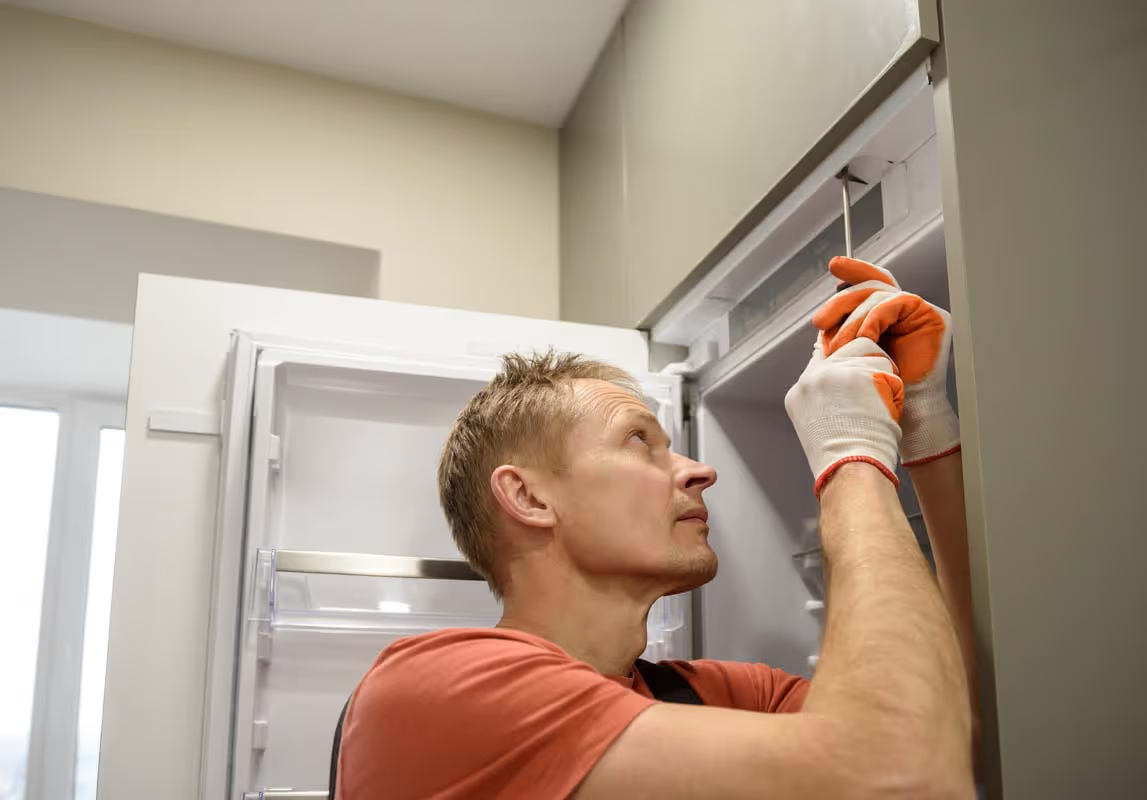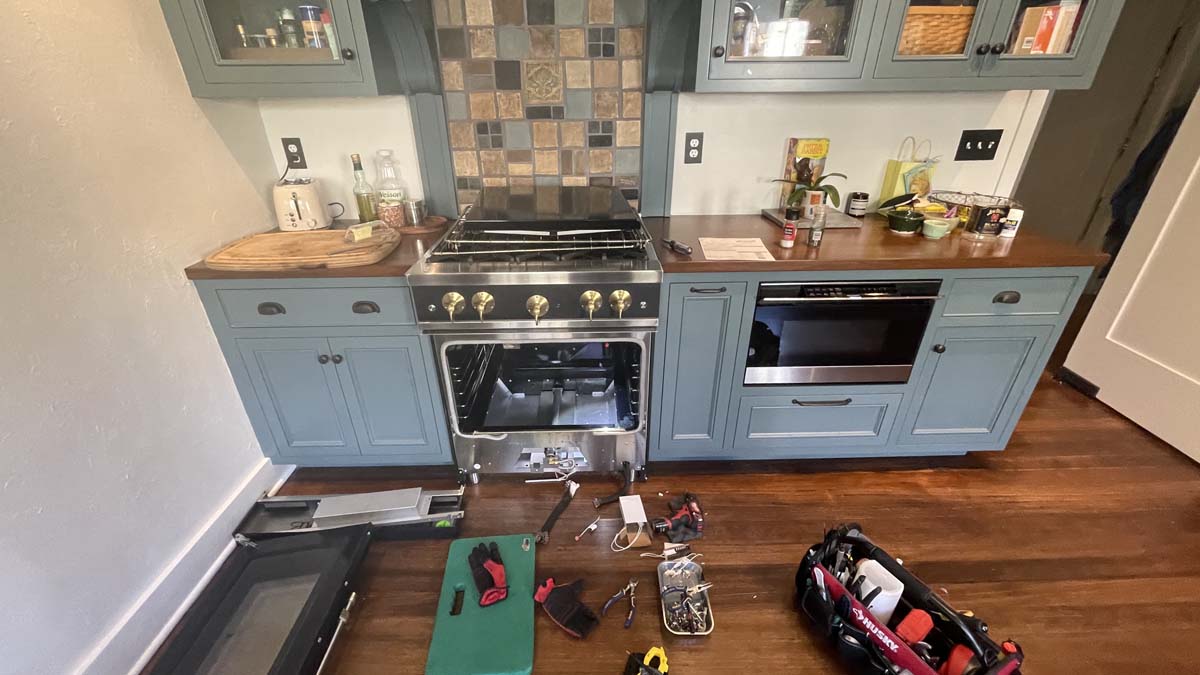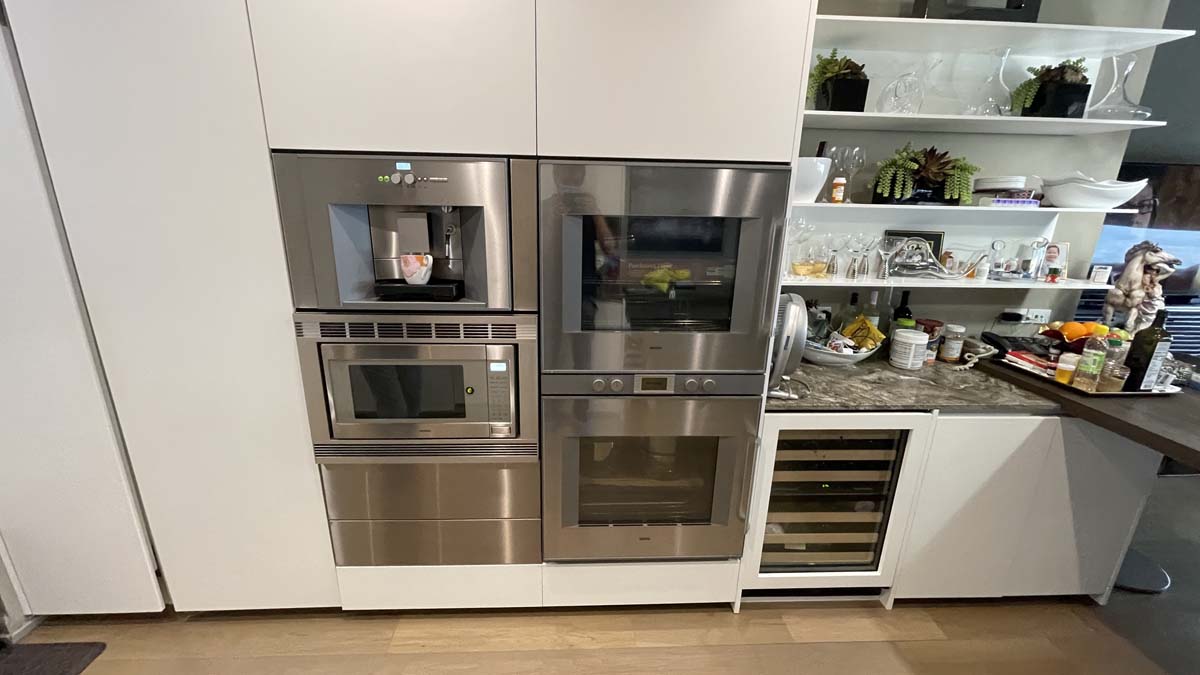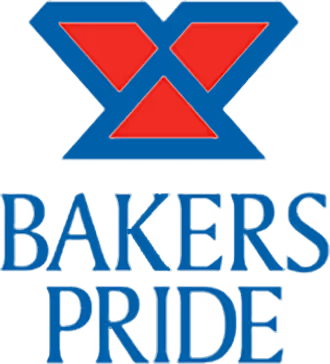Is Your Fridge Acting Up? A Guide to Common Refrigerator Repairs

Your refrigerator is arguably the most essential appliance in your home. It runs 24/7, silently working to keep your family’s food fresh and safe. Because we rely on it so heavily, it’s easy to take for granted—until it starts acting up. A strange noise, a puddle on the floor, or the discovery that your milk is lukewarm can quickly turn into a stressful, urgent problem.
When your fridge is on the fritz, you need to know what’s wrong and what to do about it. Is it a simple fix, or a sign of a major component failure?
This guide will walk you through the most common refrigerator problems we see every day. Understanding these issues will help you know when you can troubleshoot the problem yourself and when it’s time to call a professional for a safe and reliable refrigerator repair.
The Most Common Refrigerator Problems (And What They Mean)
Most refrigerator failures fall into one of five categories. Here’s a breakdown of what might be happening inside your appliance.
1. Your Refrigerator is Not Cooling
This is the most critical issue. If your refrigerator is not cooling properly, your food is at risk.
- The Cause: The problem can sometimes be simple, like dirty condenser coils on the back or bottom of the unit that are preventing it from releasing heat. It could also be a faulty evaporator fan motor that isn't circulating cold air from the freezer to the fresh food section. More serious causes include a failing thermostat, a bad compressor (the heart of the cooling system), or a sealed system refrigerant leak.
- The Solution: While you can safely clean the condenser coils, most other cooling issues require a certified technician with specialized tools to diagnose and handle refrigerants.
2. The Refrigerator is Leaking Water
Finding a puddle of water on your kitchen floor is an alarming discovery.
- The Cause: A leaking refrigerator is most often caused by a clogged or frozen defrost drain line. During the automatic defrost cycle, melted ice is supposed to drain into a pan underneath the fridge to evaporate. If the drain line is blocked, the water backs up and leaks out. It can also be caused by a cracked drain pan or a faulty water inlet valve that supplies the ice maker and water dispenser.
- The Solution: Clearing a simple clog can sometimes be a DIY fix, but if the problem is a frozen line or a faulty valve, it’s best to call a professional to prevent further water damage.
3. There is a Lot of Frost Buildup
Modern refrigerators are "frost-free," so if you see a thick layer of ice building up in your freezer, something is wrong.
- The Cause: Excessive frost buildup is a classic sign of a failing automatic defrost system. This system includes a defrost timer, a heater, and a thermostat. If any of these components fail, the coils will ice over, which restricts airflow and eventually leads to cooling problems in the refrigerator section.
- The Solution: Repairing a defrost system involves testing and replacing electrical components and should be handled by a qualified technician.
4. The Ice Maker Isn't Working
An ice maker not working is a common and frustrating problem.
- The Cause: The issue can be as simple as a clogged or frozen water supply line. However, it often involves a failed water inlet valve (which controls water flow to the ice maker) or a problem with the ice maker assembly itself, including its motor or control board.
- The Solution: After ensuring the water supply is on, most ice maker repairs require a professional to test the electrical components and water valves.
5. The Refrigerator is Making Loud Noises
Your fridge should operate with a low hum. Loud or new noises are a sign of trouble.
- The Cause: Loud buzzing or humming can mean the compressor is working too hard. Grinding or squealing often points to a failing evaporator or condenser fan motor. A clicking sound could be a problem with the start relay on the compressor.
- The Solution: It is important to have these sounds diagnosed by an expert, as ignoring them can lead to a complete and more expensive component failure.
Why Choose A+ Appliance Repair?
While some minor troubleshooting is possible, most of the problems listed above require the expertise of a certified and licensed technician. For your safety, never attempt to repair complex electrical components or the sealed refrigerant system yourself.
At A+ Appliance Repair and Maintenance, our team is experienced with all major refrigerator brands and models. We believe in honest, reliable service. That’s why we offer:
- Same-Day Service: We understand the urgency of a broken refrigerator.
- Upfront Pricing: You’ll receive a clear price for the repair before we begin.
- Free Service Call: The diagnostic fee is always waived with any completed repair.
- A Full Warranty: We stand behind our work with a comprehensive warranty on both parts and labor.
Don't wait for a small problem to become a big one. If your fridge is acting up, contact us today to schedule a fast and professional refrigerator repair service.


















.svg)


















.avif)




.svg.avif)

.avif)
.avif)











.avif)








.avif)




.avif)



.avif)




.avif)





.webp)



.avif)
.avif)
.avif)
.avif)
.avif)
.avif)
.avif)
.avif)
.avif)